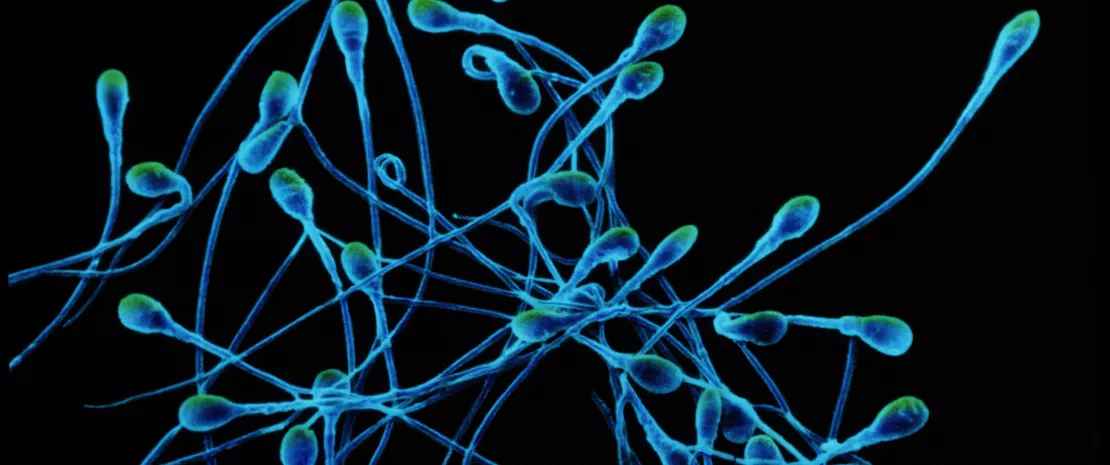Gut dysbiosis in men: what are the consequences for their children?
Testicular physiology is strongly affected by gut dysbiosis. This could have unfortunate consequences for the health of future children. This is the main finding of a study carried out on mice.
Lay public section
Find here your dedicated section
Sources
This article is based on scientific information

About this article
Is there an axis of communication between the gut and germ cells? Yes, according to a new study published in Nature. 1
Dysbiosis, harmful to the reproductive system and future children
Researchers at the European Molecular Biology Laboratory in Heidelberg and Rome induced gut dysbiosis in male mice by administering either non-absorbable antibiotics (which do not cross the gastrointestinal epithelium) or osmotic laxatives. They then mated them with healthy females and analyzed their offspring.
Result: the pups suffered not only from lower birth weight and severe growth restriction, but also an early mortality rate 3.5 times higher than that of litters from healthy males.
Analysis of the reproductive systems of the fathers suffering from dysbiosis revealed various metabolic, physiological and hormonal changes:
- lower testicular weight
- changes in the structure of the seminiferous tubules
- different quantities of certain metabolites involved in germ cell functions
- deregulation of certain genes, notably a significant drop in the expression of the leptin gene, a hormone produced by adipocytes, but also by germ cells
Leptin, a key signaling factor?
Even more interestingly, in male mice mutant for the leptin gene (mimicking the effect of dysbiosis on leptin gene activity), the researchers noted characteristics similar to dysbiotic males (lower testicular weight and abnormal seminiferous tubules). Their sperm also showed changes in the abundance of certain "microRNAs" known to play a role in placental development during gestation.
By crossing these mutants with normal females, the researchers noted that the embryos showed a significant number of genes differentially expressed compared with embryos from healthy males. For the researchers, this demonstrates that leptin may well be an important signaling molecule in the gut-germline axis.
Microbiota influence on women's fertility
By interacting with estrogens, androgens and insulin, the gut microbiota plays a major role in female endocrine systems. Studies show that an imbalance can lead to complications during pregnancy, as well as diseases associated with infertility such as polycystic ovary syndrome or endometriosis. The gut microbiota is now considered an endocrine organ in its own right. 2
Severely disrupted placental development
Analysis of fetuses from mating with antibiotic-treated males and their placentas showed down-regulation of several important factors in placental development.
Among the main genes differentially expressed in placentas from crosses with antibiotic-treated males versus placentas from crosses with healthy males, the researchers found several clinical markers of placental insufficiency, such as those for pre-eclampsia.
Also present were:
- reduction of certain areas of the placenta (labyrinthine zone)
- altered placental vascularization
- a decrease in the placental growth factor
In a nutshell
For the first time, this study demonstrated that the environment can, via modulation of the gut microbiota, lead to sperm defects that can alter placental function and, therefore, the health of future children. It now remains to be seen whether a gut-germline axis also exists in humans... More to follow!







